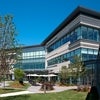The future of Atlantic Union College
Atlantic Union College in Lancaster is at an impasse, and it would be easy to predict the school will soon join the ranks of Central New England College of Technology and Worcester Junior College as institutes of higher learning forced to shut the doors.
After losing its accreditation in 2011, Atlantic Union's 400-plus students were forced to transfer elsewhere, and the college effectively closed for four years. No one won during that period of closure. Students weren't filling the campus with life, professors weren't buying houses in town, and area businesses lost a significant customer base. Now reopened, the school hosts about 50 students looking to gain credits before transferring elsewhere. Atlantic Union, centered around the Seventh-day Adventist faith, will be unable to bestow degrees until it gets its accreditation back from the New England Association of Schools and Colleges – which at the earliest would be in 2019. Until that time, the college and its many campus buildings is almost entirely dependent on funding from the Seventh-day Adventist Church – to the tune of $4-5 million annually. In April of this year, the church's Southern New England Conference, a separate funding source than the church, decided it would be better to reallocate its $800,000 annual funding stream to scholarships for students to study elsewhere in their system.
Atlantic President Avis Hendrickson's plan to bring the school back to its capacity as a 1,000-student-body campus relies almost exclusively on attracting Seventh-day Adventist students and building enrollment until accreditation returns. Starting at 50 students, it's a pretty steep hill to climb.
For her to succeed, Hendrickson's going to have to thread the needle with her strategy, and get a few breaks along the way. Atlantic Union does have the resources, and for now, the patience of the Seventh-day Adventist Church, as it continues to receive $3-4 million annually to keep the school's operations going. With $2.9 million in unrestricted cash on hand and the annual church subsidy, the school should be able to survive long enough to see if the recovery plan takes root, unless its reaccreditation takes longer than expected. Planning for what is next for the campus in the center of Lancaster will become (or is already) a critical issue – for both the church and the town.
The shifting sands of the marketplace affect all kinds of institutions and businesses, and struggling colleges are no exception. This month, Boston's Wheelock College began selling off its properties and is considering doing away with its undergraduate programs, given its diminished student body and unsustainable operating losses. Successful turnarounds do happen, but they are really hard work, and some collateral damage is inevitable when an institution is up against its survival.
While not a tax paying entity, a college campus can be a vital economic and cultural engine for a community. We hope Atlantic Union College is successful in getting its accreditation back and returning the campus to life. But if it is not, Hendrickson and the Seventh-day officials need to work proactively with the community to find the next best use for the campus.









0 Comments